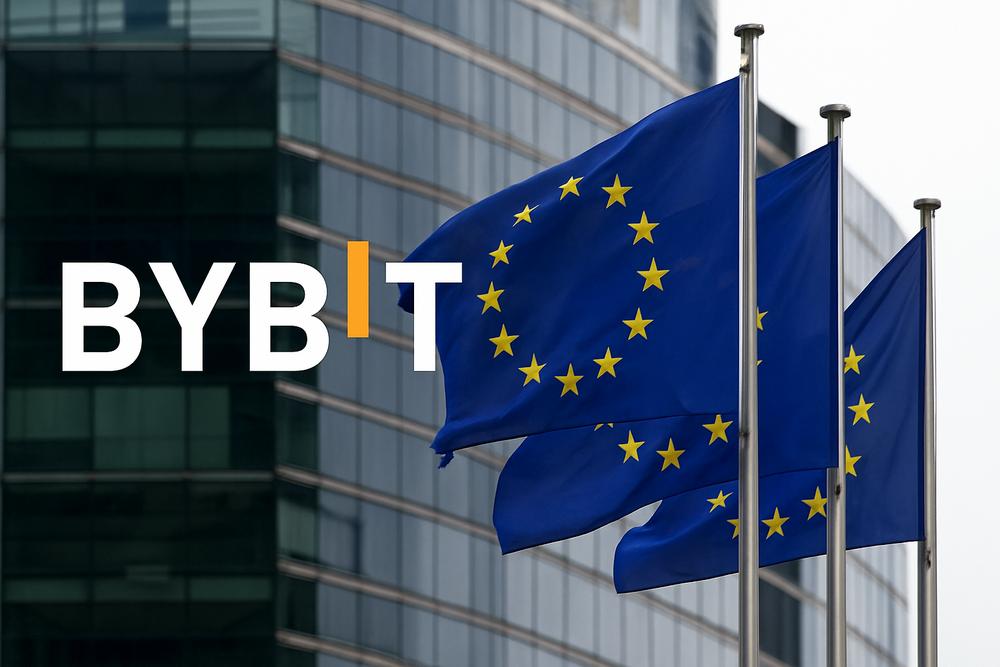Interview: Tong, PANews
Written by: Zen, PANews
Among crypto exchanges, Bybit and Binance share many similarities. Their founders Ben and CZ both have overseas study and life experiences, established companies in Shanghai and quickly expanded internationally, making the Middle East their strategic stronghold, with offices even located in the same area in Dubai. However, they also have clear differences, with Binance starting from spot trading, while Bybit made its mark with derivatives and subsequently built a spot trading system while rising against the trend.
"Transcending Boundaries" is Ben's definition of Bybit's development in the past two years. In mid-April, Bybit organized the CCCC content creator event in Bali, where Ben shared Bybit's journey over its 7-year history, security upgrades, and innovative products. PANews editor Tongtong was invited as a CCCC event mentor and conducted an exclusive interview with Ben.
The most discussed Bybit hacker incident has largely been resolved, with the crisis management being praised as a "textbook" approach. In the interview, Ben Zhou candidly said: "I started facing challenges alone from a young age, and this experience taught me how to remain calm during a crisis and mobilize team resources to respond to emergencies as quickly as possible." Because of this, when facing the shocking hacker attack in February, Ben not only immediately disclosed information and stabilized market expectations but also personally coordinated departments for post-incident investigation and system restoration, demonstrating strong leadership and judgment.
[The rest of the translation follows the same professional and accurate approach, maintaining the specified translations for specific terms.]
In fact, besides continuously optimizing core spot and derivatives businesses, Bybit Pay is just the tip of the iceberg in terms of business model innovation.
Currently, a gold rush is sweeping the globe, and as early as August 2024, Bybit became the first crypto exchange to support gold spot trading priced in USDT, and launched the "Gold & Forex Copy Trading" function in January, allowing users to follow professional traders' gold and forex strategies. Additionally, Bybit officially launched CFD products such as crude oil and stock indices on the MetaTrader 5 (MT5) platform, supporting users to directly trade global commodities and indices using USDT.

These measures not only attracted more traditional financial market participants but also enabled Bybit to achieve considerable trading volume and liquidity even during a bear market. Leveraging these diversified products and innovative features, Bybit set a historical single-day total trading volume of $107 billion in August 2024, a four-fold increase from previous average levels, firmly establishing itself as the world's second-largest crypto exchange. Moreover, with the recent surge in gold prices, on April 17th, Bybit's platform's gold trading volume reached $24 billion in a single day.
After the hacker attack, Bybit achieved a strong recovery within just one week. A report by Block Scholes pointed out that the RPI (Retail Price Improvement) mechanism deployed by Bybit was a key factor in the exchange's rapid recovery, stating: "With the timely launch of RPI orders, Bybit stabilized its liquidity situation and began rebuilding its market share in overall crypto spot trading." RPI was launched just days before the hacker attack, designed for retail users, and only matched with non-algorithmic orders, thereby activating the platform's order book while ensuring fairness. Ben also compared Bybit's liquidity depth with Binance's for the top 200 market cap cryptocurrencies at the event site, with results far exceeding industry standards.

Abandoning Web3 Wallet Business, Aiming to Become a One-Stop Asset Management Platform
In recent years, centralized exchanges have almost all been striving to become the preferred entry point to the Web3 ecosystem, and the "CEX+Web3" hybrid strategy seems to have gradually become the standard for crypto trading platforms. In the public perception, CEXs are no longer just traditional matchmaking merchants but also builders and developers of Web3 underlying infrastructure and products. However, Bybit seems to be going against this trend.
On April 16th, Bybit released an important update on Web3 product and service adjustments, announcing the termination of multiple Web3 services during its strategic transformation. According to the announcement, Bybit will stop services for its Cloud Wallet and Keyless Wallet on May 31st this year and plans to close several Web3 trading functions, including its DEX Pro platform, Swap & Bridge services, and a broader NFT marketplace.
Prior to this, as of April 8th, Bybit had already terminated support for products including Inscriptions, NFT Pro, ApeX, Buy Crypto, and its Initial DEX Offering (IDO) platform, with its Web3 Points program set to stop on April 28th.
"We recently made a decision to only retain the seed phrase wallet service," Ben stated in the interview. When Bybit became the world's second-largest exchange a year ago, he had already informed the team to remove market share from core business indicators and not be limited by market share. He believes that for Bybit, which has a dark horse gene, moving from copying well and quickly to achieving true innovation is the necessary path for the platform's next stage. Therefore, to refocus resources and provide a more efficient, user-centric experience, it is necessary to streamline Web3 products, including wallet services pushed by major exchanges like Binance and OKX.
Ben pointed out that even during a bear market, centralized exchanges can operate normally because they are in the industry's throat position. "I asked the team: 'Is the wallet the throat of Web3?' No one could answer." He further questioned the team about Web3's throat, but still reached no conclusion. "But one conclusion is that the wallet is definitely not the throat," Ben added, because DApp usage priority is far higher than the wallet itself. If mainstream DEXs like Jupiter, Raydium, or Uniswap do not support a certain wallet, users will not hesitate to switch to another compatible wallet, as DApp is their core need. This means that Web3 wallets themselves lack an irreplaceable traffic entry value.
Moreover, barriers between wallets are extremely low, and user switching costs are minimal, allowing easy asset migration between multiple wallets. Transfers are also very convenient, making it difficult for wallets to build moats, with user stickiness and long-term retention becoming extremely fragile. This turns wallet competition into a race of "who can attract more airdrop hunters," and such behavior of "attracting short-term traffic through incentives" is not only unsustainable but also fails to construct the ecosystem logic of "user sovereignty, protocol collaboration, and mutual benefit" advocated by Web3. Ben clearly stated: "Airdrop hunting is not the core of Web3, nor its future throat."
"I think ultimately everyone will compete to become a one-stop asset management platform." Ben noted that due to habit, most users are unwilling to frequently register or switch platforms for different assets, and even if another platform has lower fees, they prefer to operate in a familiar environment. Therefore, only through a unified platform covering all-category products like US stocks, precious metals, and cryptocurrencies can one maximize fund retention, enhance stickiness, and create cross-selling opportunities.
Returning to European and American Crypto Markets
In recent years, the global cryptocurrency market has been accelerating towards compliance, with regulatory bodies in many countries issuing or improving frameworks to balance innovation and risk. Based on the UAE government's open policy on digital assets, mature and forward-looking regulatory framework, and superior geographical and economic location, Bybit quickly established its global headquarters in Dubai after obtaining IPA approval from the UAE Ministry of Economy in 2022. In February this year, Bybit received a Principles of Approval (IPA) from the UAE Securities and Commodities Authority (SCA), allowing it to establish a virtual asset platform operator in the UAE, marking the final stage of obtaining a comprehensive operating license.
For Bybit, which aims to become a global one-stop asset management platform, returning to Europe and entering the US market are currently its most important international strategic goals.
"Bybit's mission is to provide a safe and reliable trading experience for all cryptocurrency communities, supported by a robust regulatory framework. To ensure we meet the highest standards and pave the way for a safer, more sustainable industry future, we proactively decided to temporarily adjust our operations in the European Economic Area (EEA)." At the end of last year, in response to the Markets in Crypto-Assets Regulation (MiCAR), Bybit announced a temporary withdrawal from the European market.

In February this year, Bybit was removed from the "blacklist" by the French Financial Markets Authority (AMF) through proactive actions, ending the regulatory turbulence since 2022, which is seen as a key turning point for its return to the European market. "Bybit is actively seeking to obtain the MiCAR license in Austria," Ben stated, adding that previous hacking incidents have no impact on this. Once the corresponding license is obtained, Bybit can collaborate with EEA customers again in accordance with applicable laws.
Since taking office as the US President in January this year, Trump has released strong signals through multiple administrative measures, providing a more relaxed regulatory environment for the digital asset industry. Facing the open door, Bybit, which previously had no US business and did not even hire US citizens, has begun exploring the possibility of entering the US market.
Besides the European and American markets, Bybit has also set its sights on the Hong Kong region. In February last year, Bybit's Hong Kong entity Spark Fintech Limited submitted a Virtual Asset Trading Platform (VATP) license application to the Hong Kong Securities and Futures Commission (SFC). Later, Bybit discovered that the licensed person of its subsidiary had not completed the resignation procedures from the previous job before joining Bybit, causing a dual identity issue, and ultimately decided to withdraw the application. Currently, Bybit has reapplied for the VATP license, and Ben emphasized: "Hong Kong is now very welcoming to us".








